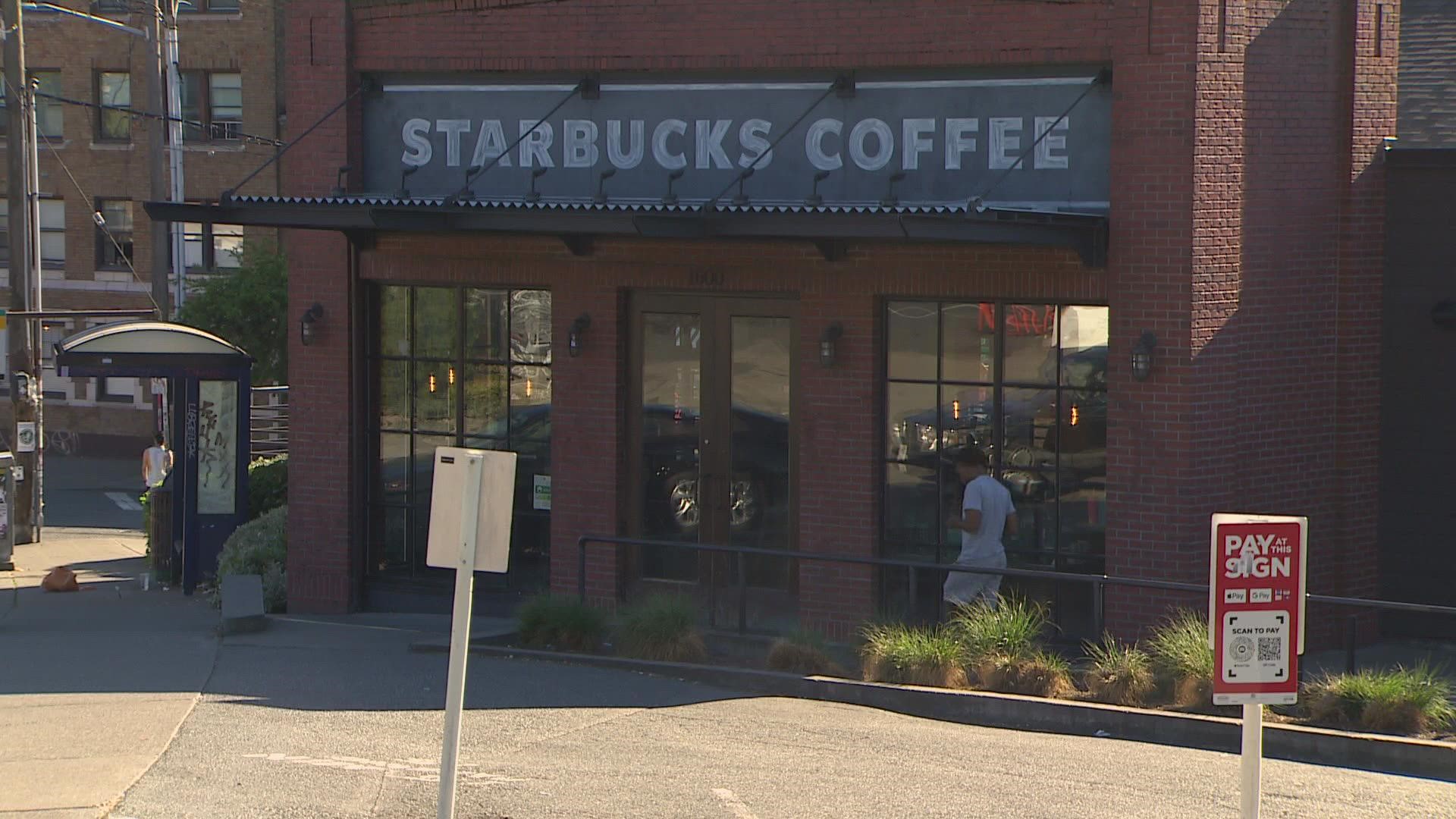SEATTLE — Starbucks announced Monday it will close five "high-incident" stores in Seattle and one in Everett will remain closed due to ongoing crime concerns in the area.
A Starbucks spokesperson said the company has been having safety and customer experience conversations since Howard Schultz returned as CEO. The company asked store leaders about issues they had in community relations before deciding to close the stores permanently, the spokesperson said.
"We were similarly challenged in the city of Seattle for ensuring safety of our customers and employees," the spokesperson said in a statement.
The spokesperson said these five Seattle Starbucks locations will close July 31; the Everett location has been closed since June and will permanently close:
- 23rd and Jackson Avenue
- 1600 East Olive Way
- 505 5th Ave South
- 400 Pine Street
- Roosevelt Way and NE 65th Street
- Airport Way and Highway 99 (Everett)
Starbucks said two of the closed Seattle stores were unionized.
"There are 16 stores in total that are facing safety challenges," the spokesperson said in response to allegations the company was targeting unionized stores. "We apply the same safety standards across all stores which is why we are closing both union and non-unionized stores."
After the closures are finalized, there will still be over 100 Starbucks locations in Seattle and 16 in Everett, according to the spokesperson.
Starbucks said it is closing 16 stores across the country, with some locations in Oregon and California also being shuttered.
In June, Schultz floated the idea of reversing its policy to let anyone, including non-customers, use their bathrooms because of safety concerns.
“We serve 100 million people at Starbucks and there is an issue of just safety in our stores, in terms of people coming in who use our stores as a public bathroom," Schultz said. "And we have to provide a safe environment for our people and our customers. The mental health crisis in the country is severe, acute and getting worse.
"We have to harden our stores and provide safety for our people. I don’t know if we can keep our bathrooms open."

